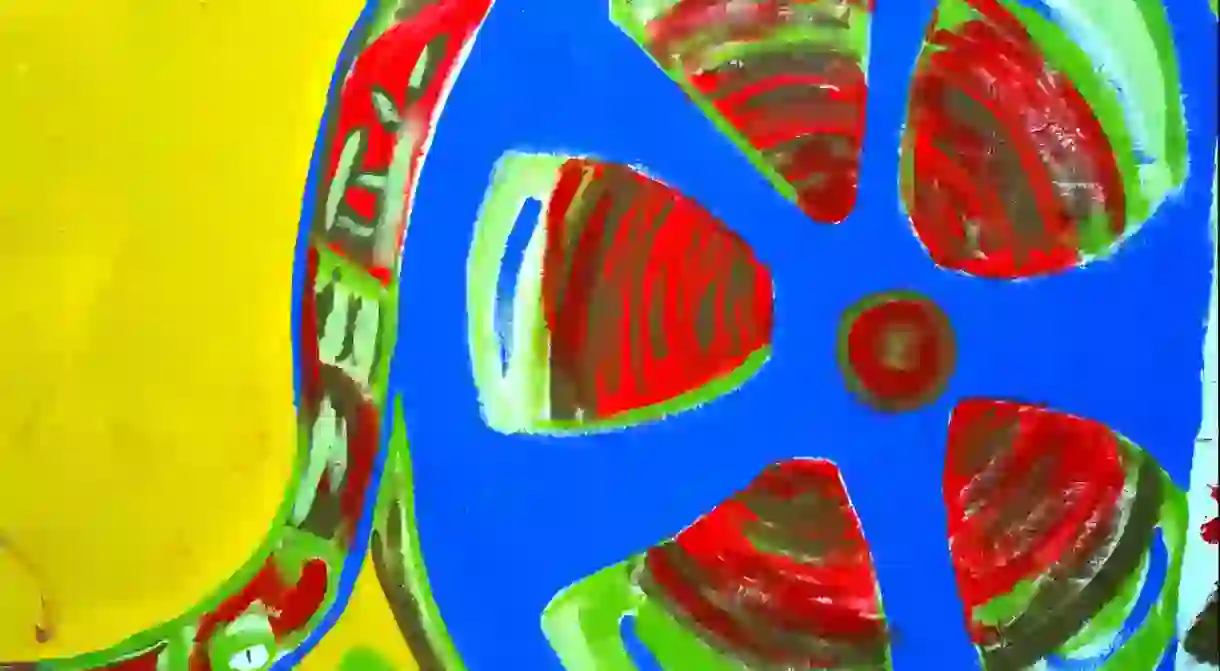The Best Art House Cinema in Montenegro

After a long hiatus during the disintegration of Yugoslavia, Montenegro’s film industry is starting to gain traction again. More and more Montenegrin filmmakers are finding the funding to make films that speak to a Montenegrin audience and deal with the issues unique to Montenegrin citizens. With local tastes tipped toward parody and relateable characters, art film has always found an audience in Montenegro, and now Montenegrin films are being shown internationally too. Here are the top Montenegrin art house films.
The Beauty of Vice
The Beauty of Vice is a 1986 classic Yugoslav/Montenegrin film that examines what happens when modern Western lifestyle collides with traditional Montenegrin values.
In the film, a young couple leave their impoverished life in their village for the promise of easy money on the coast in Ulcinj. The husband gets a job at the salt works, and she becomes a cleaner in the nudist resort at Ada Bojana. Initially, the wife is terrified by the foreigners’ nudity, but soon she gets caught up in their joie de vivre, and she begins to question her old lifestyle.
Montenegro is traditionally very patriarchal and authoritarian, something which continues on in households today. The Beauty of Vice is as relevant today as was in 1986, in part because Montenegrin society struggles to incorporate a modern Western lifestyle into its traditional value system.
Prelude For Sniper
The short film features well-known Montenegrin artist Dimitrije Popovic as he explores the tragedy that is modern consumerist lifestyle. The story is seen through Dimitrije’s eyes as he explores terrorism, the exploitation of female sensuality in marketing and the duality of human nature during one of his painting cycles. The film shows Dimitrije working with one of Croatia’s top singers, Severina, and follows him back to his childhood home in Cetinje.
Montenegro director Danilo Marunovic’s Prelude For Sniper premiered at Hollywood’s ARPA International Film Festival in 2017 and has been shown at other film festivals, including the 2017 Montenegro Film Festival.
Golden Nunchucks
The town of Zabjelo is ruled by an evil queen and corruption, hunger and injustice rule. One night, Bore Lee has a dream about the suffering in the town, so he dives into the sea and comes up on a Zabjelo beach. He meets up with a Zabjelian dissident who hopes he is his long-awaited liberator. Bore suffers from homesickness and the heat. He tries to defeat an evil witch and restore Zabjelo’s symbol of freedom – golden nunchucks.
Bore Lee, born Boris Ivkovic, is a Croatian actor and martial arts enthusiast who became an underground movie sensation. A huge Bruce Lee fan, he started making martial movies with a VHS camera; he captured the attention of a group of filmmakers who cast him in low-budget martial arts parodies. Lee went on to becomes some of the most popular trash films in Croatia.
To Really Live
Zaista Zivjeti is an uplifting documentary about Goran Macanovic, a blind man living in Montenegro. The story follows how Goran has been able to craft an independent life despite his disability and the obstacles he’s faced. It also highlights the struggles that disabled people face becoming independent in Montenegro. Even simple things like ramps at building entrances and footpaths are often missing. Goran is an advocate for disabled people in Montenegro, and the film is a project by the Association of Young People with Disabilities in Montenegro.
The Ascent
In this debut film by director Nemanja Becanovic, Jovan has just graduated with a degree in literature and is trying to write his first novel. He decides to go to a remote village where his friend has a property, so that he can devote himself to finishing his book. He meets an illiterate family in the surrounding village; they have virtually no contact with the outside world and are ruled by a tyrant called Zeko. Jovan’s arrival in the village changes all their lives.
The Ascent was featured in film festivals throughout the Balkans as well as at the Raindance Film Festival in the U.K.
Local Vampire
In this 2011 film by Branko Baletic, a young man is conned and accrues debts with the local mafia that he can’t pay. His mother comes up with plan to get him out of his troubles: fake his own death. They follow through with the plan, even holding a funeral, but things go awry when he’s spotted sneaking out to visit his girlfriend. The superstitious locals come to the conclusion that he’s a vampire, risen from the dead. The son uses the opportunity to exact some revenge on neighbours who annoyed him in the past. Soon enough, the rumour attracts tourists and people wanting to profit from the rumour. But it also attracts the mobsters he was indebted to who aren’t exactly buying into the story.
Local Vampire is set on the shores of Skadar Lake, where the quaint stone buildings, bridges and lake make for a stunning backdrop for this entertaining dark comedy.













